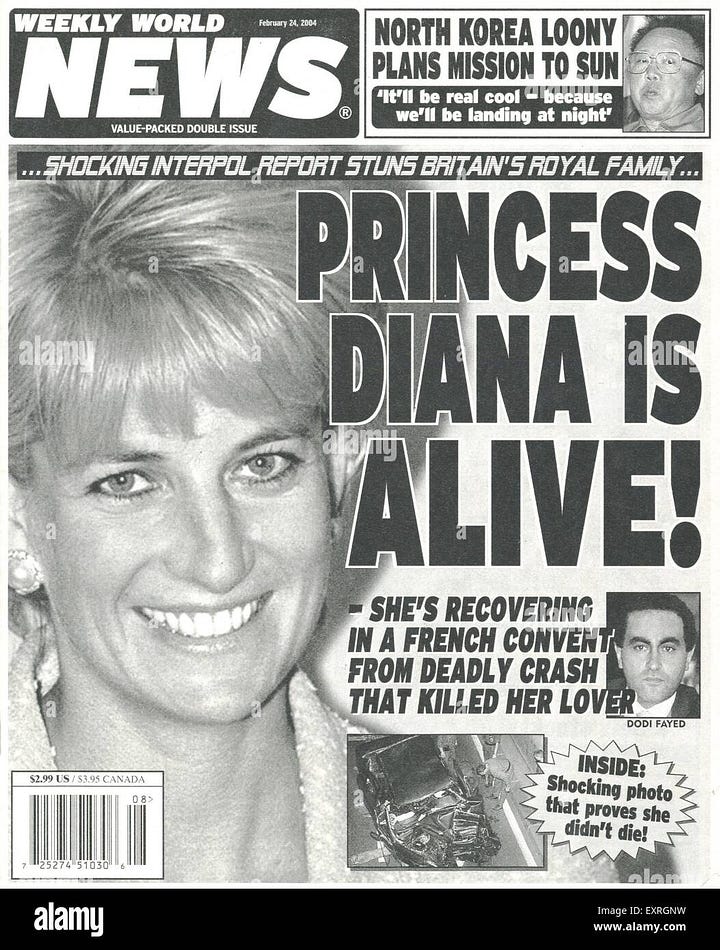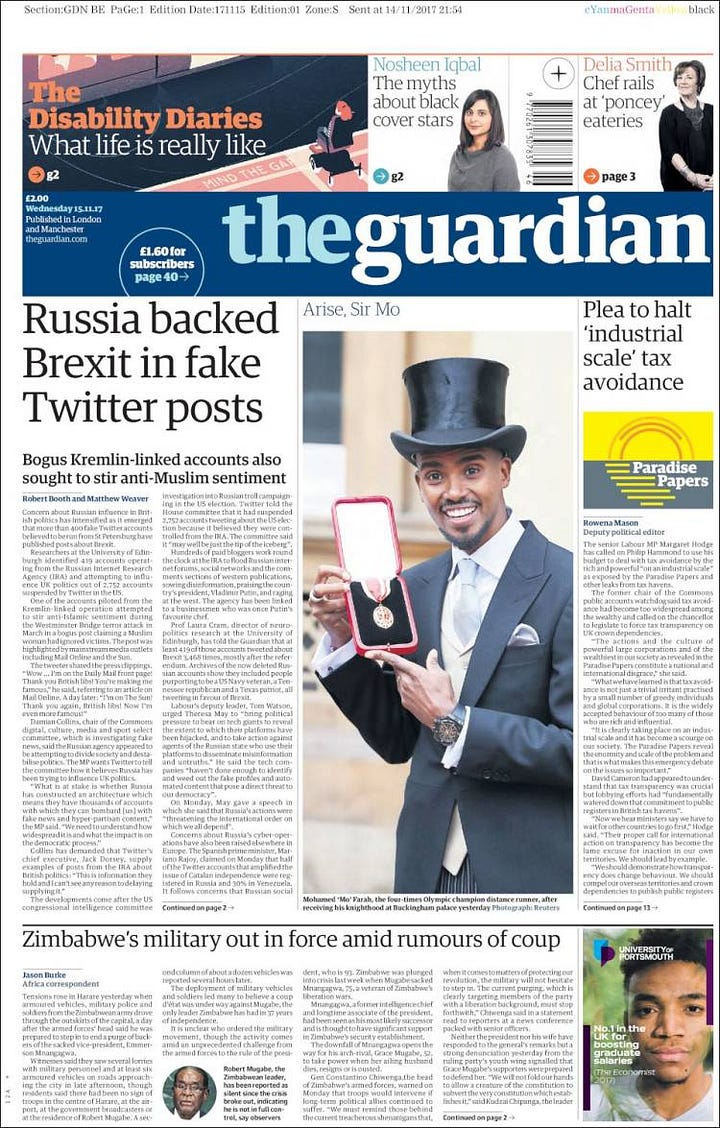
Two weeks ago, I suggested that we are starting to see the real effects of generative AI on websites and social networks. Facebook is overrun with AI-generated pictures which boomers seem to Like without any regard for how real they are. This broke through into the real world last week, when an AI-generated picture of a girl in floodwaters holding a puppy went super-viral, requiring fact-checking sites to gird their loins. Instagram is going to start pushing AI-generated photos generated from your images into your feed. Someone’s pushing a social network consisting entirely of AI-generated interlocutors. And meanwhile real websites are shutting down because they can’t see their way forward.
My take was that this is going to become a problem: that as AI slop starts to take up more and more of what is visible online, we will get overwhelmed, and that many people won’t be able to discern the difference, so everything just goes to pot.
There’s already a problem with Google Images, as shown in one tweet earlier this week:
Once Google is poisoned, everything is screwed, right?
Not so, suggested one doughty reader in a comment.
Could this be true? Could it be the case that news organisations are going to find people flocking back to them, in search of that elusive content that they can be sure is real?
It would be nice to think so. But.. the signs aren’t that good. For instance, earlier this week the boss of Reach, a newspaper group with 240 local publications, sent out an email to staff—basically telling them to churn out more content:
“Going forward, there’s a lot of working happening to diversify our revenue streams – be it through affiliates, social video, podcasts, e-commerce or other routes that haven’t even emerged yet – but in the meantime we need to make sure we’re bringing in the funds that will support the business to continue developing and transforming the way we engage readers as the digital media landscape changes.
“The way we do that right now is through page views. It may not be a perfect metric, but as a directly monetisable digital unit, it’s the best thing we’ve got right now.
“And at the risk of reducing journalism to pure maths, the page views we generate are a compound of the number of articles we produce, and the number of times that each one is read.
“That might seem like a complete statement of the obvious, but it’s an important thing to confront when we think about the things that we need to do to fund our journalism. To increase page views, we need to increase either the number of articles we produce, or the number of people who read each one (or both).”
This really is one of those situations where you have to think that if this is the answer, then the question is wrong. Reach’s news websites are astonishingly unpopular with anyone who is used to websites and/or to news, because they make the experience of trying to find news, and trying to navigate a website, extremely unpleasant. James O’Malley did a lengthy takedown of this back in January, pointing out how the Birmingham Mail (a Reach publication) has a weird obsession with the BBC Breakfast programme, which is based in Salford, which is nowhere near Birmingham (it’s near Manchester).
And the Birmingham Mail site itself is an absolute user experience horror, as he showed:
Can you actually find the content in there? A hint: four lines of it are visible. You may have come to read one story, but you’re being shown two others instead (a video and a chumbox off-site one), plus an advert. Hooray! One page view, and one advert! Job done!
So here’s the question: how would you distinguish one of the Reach sites, bombarding you with overlaid videos, cookie popups, and chumbox adverts, from a complete fake site pushing fake news? This is the problem of news on the internet. With the printed page, you can figure out quite quickly which source is reliable:


But when it comes to websites, the internet flattens everything. It’s all just a click or a URL away, and you might need some skill to tell the difference between a junk site and a site that just looks like junk.
The other problem with hoping for the return of the gatekeepers is that too many companies have now inserted themselves as gatekeepers in the media ecosystem. Google is the biggest of the beasts, but Facebook/Instagram/Threads also has a big role to play, while Twitter is a sort of circular economy all its own, with people making up “news” and using big accounts to spread it around.
The reality is that we can’t force people to like, or even want, reliable news. Even when it’s presented to them, they’ll find ways to disparage it and claim it’s fake or biased: you only have to look at the partisanship that emerges around reports coming out of Israel, Gaza and Lebanon to see that people filter news through their existing prejudices, and judge the truth or otherwise of what they see or read through it. On that basis, they’re not going to think they should flock back to the gatekeepers that they grew to dislike and/or distrust, or at least which they found less exciting than all the other things they could do. Just look at the Reach sites: would you rather be looking at Facebook’s AI slop, or fighting off overlays on a news site?
This is the real problem with AI slop: it isn’t great, but it isn’t as bad as some of the rubbish that passes for news on some sites. If you’re in the right mood, you can even enjoy some of its dream-like qualities, and share it with other humans for a laugh. The irony is doing that wouldn’t fit into the strictures of the more stories/more page views reductio ad mathematicam of Reach: the idea of pointing up the absurdities of such things doesn’t figure on their news agenda.
The reality is that “news” is now found on sites like Substack: you can spend as much money subscribing to writers here as you could have in the past on newspapers. There’s as much free content—perhaps even more—than you’d have got in the past. Newspapers have exploded under the stress of the internet, and the useful pieces are now spread all over the web. Your challenge is generally to find them, not to get past a gate to them.
So: we aren’t going to get the news gatekeepers of yore back. The dynamics of the internet have changed it all. Sorry about that, Neil. But it was a worthwhile question.
Glimpses of the AI tsunami
(Of the what? Read here. And then the update.)
• Artist appeals ruling that refused copyright on his AI-generated picture. In many ways the picture that kicked it all off, “Théâtre D'opéra Spatial” was a fantastical work that won an award, but turned out to be mostly MidJourney’s creation. Now Jason Allen wants the US Copyright Office to reverse.
• Apple releases Depth Pro, an AI model that rewrites the rules of 3D vision. Can produce depth maps from 2D images in a fraction of a second. Useful for cars, but also for generating content.
• Let Google Gemini choose the next book for you to read. Who needs Amazon and its algorithms, eh?
• “I quit teaching because of chatbots.” Why? The students were spending so much time getting assignments written by chatbots, which she could recognise. But: “I found myself spending more time giving feedback to AI than to my students.”
• Another thread of weird AI-generated short videos. Because why not. The best by far is the “superheroes eating pasta”, which has the dream-like quality that I’m coming to expect as typical from AI-generated video.
• You can buy Social Warming in paperback, hardback or ebook via One World Publications, or order it through your friendly local bookstore. Or listen to me read it on Audible.
You could also sign up for The Overspill, a daily list of links with short extracts and brief commentary on things I find interesting in tech, science, medicine, politics and any other topic that takes my fancy.
• Back next week! Or leave a comment here, or in the Substack chat, or Substack Notes, or write it in a letter and put it in a bottle so that The Police write a song about it after it falls through a wormhole and goes back in time.






A further step to degradate Photography into super (wow) viral stupidity. It seems the book has at least one good reason to be
https://substack.com/home/post/p-149844173
Those Reach newspapers always hated the internet for stealing their lunch. If you read the physical copies, they are actually pretty good in my experience. Will try and put some thoughts together about why I think gatekeepers will get more important.